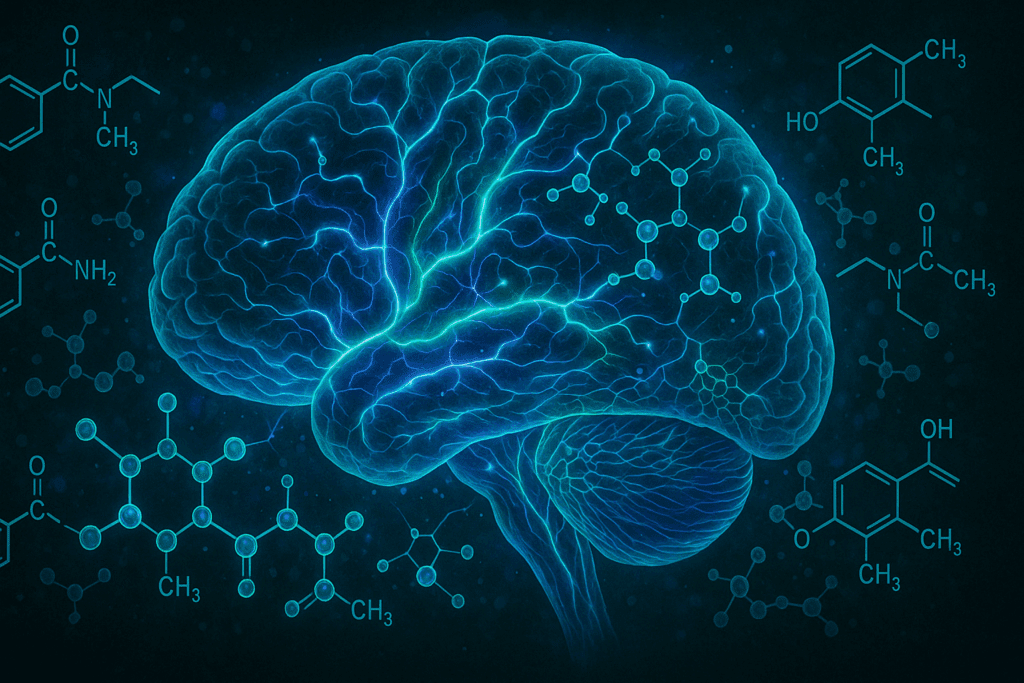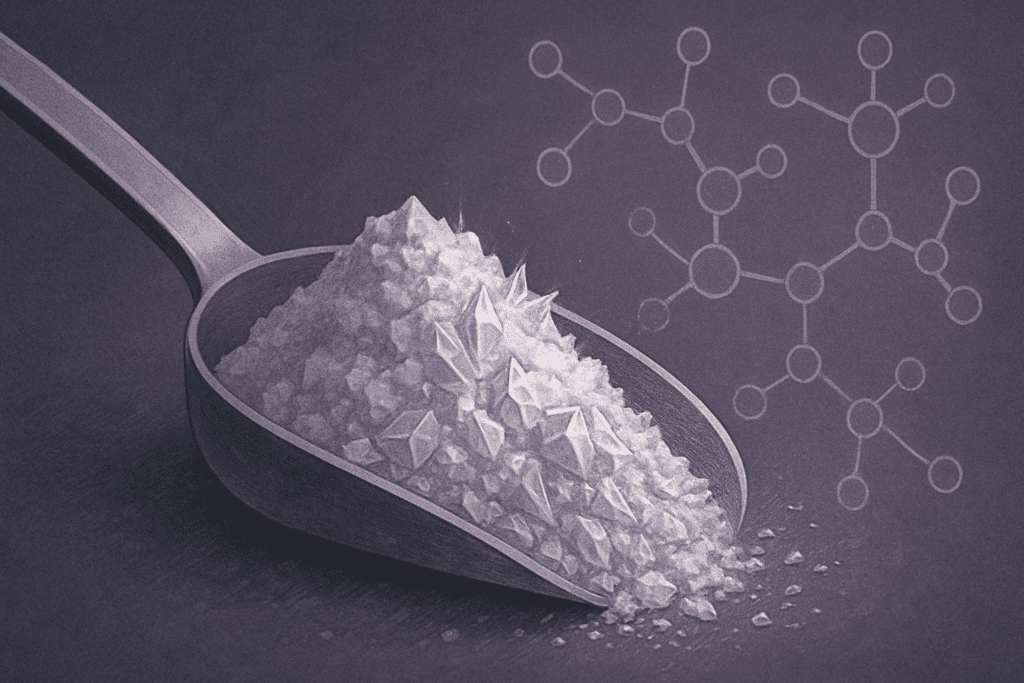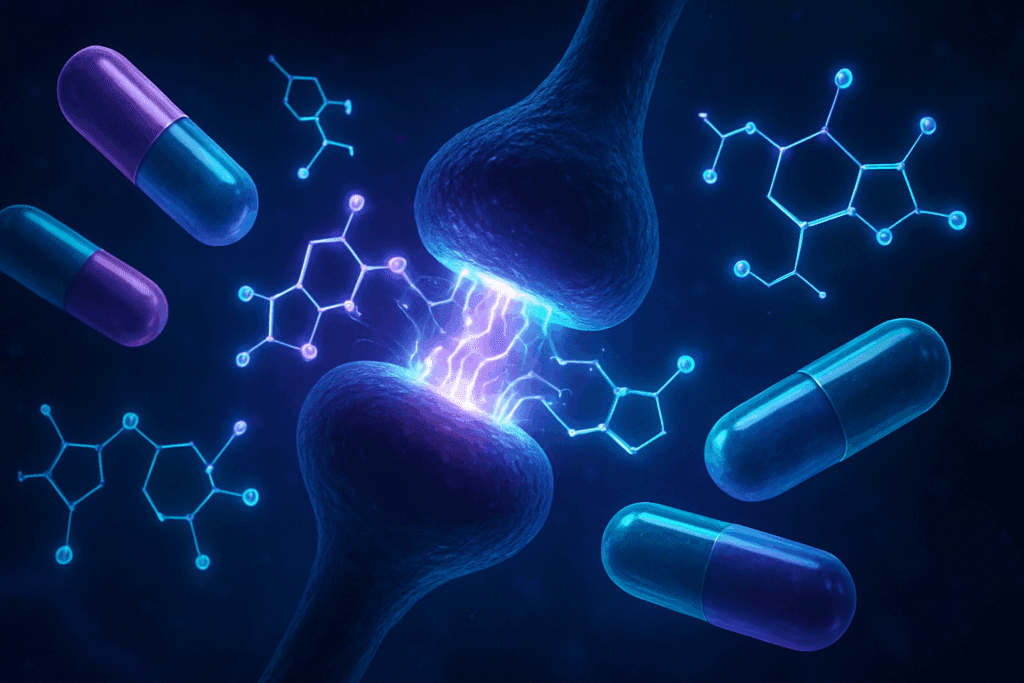In today’s fast-paced world, cognitive performance is a prized asset. Whether you’re a student navigating complex coursework or a professional striving for peak productivity, mental clarity and focus are essential. Increasingly, individuals are turning to nootropics to support their brain health, and among the most discussed are choline-based supplements. Specifically, the debate around choline citrate vs choline bitartrate has drawn significant attention in the wellness and biohacking communities. These two choline salts are commonly used to enhance cognitive function, reduce brain fog, and support neural integrity, but which is superior? This article dives deep into the distinctions, mechanisms, benefits, and practical applications of choline citrate and choline bitartrate, offering a science-backed comparison for anyone seeking to optimize mental performance.
You may also like: Citicoline vs Alpha GPC: Which Choline Source Offers the Greatest Cognitive Support?

Understanding the Role of Choline in Brain Health
To appreciate the difference between choline citrate and choline bitartrate, it is essential first to understand what choline is and why it matters. Choline is a water-soluble essential nutrient often grouped with the B-complex vitamins. It plays a pivotal role in various physiological processes, including the synthesis of phospholipids like phosphatidylcholine, which are critical components of cell membranes. Most importantly for brain function, choline is a precursor to acetylcholine, a neurotransmitter involved in memory, attention, and muscle control.
Choline also supports the structural integrity of neurons, assists in methylation processes vital for DNA synthesis, and plays a role in fat metabolism in the liver. While the human body can synthesize small amounts of choline in the liver, the majority must be obtained through diet or supplementation. Given that dietary choline intake often falls short of recommended levels, supplementation becomes an attractive option, particularly for those experiencing cognitive decline or persistent brain fog.

What Is Choline Citrate?
Choline citrate is a compound formed by combining choline with citric acid, resulting in a highly bioavailable choline salt. It is favored for its solubility in water and mild, pleasant taste, making it easier to incorporate into beverages or powdered nootropic stacks. The presence of citric acid also has its advantages; citrates are known to support energy production at the cellular level by participating in the Krebs cycle, although this is a minor benefit in the context of choline supplementation.
In terms of its nootropic application, choline citrate is appreciated for its relatively fast absorption rate and ability to cross the blood-brain barrier effectively. Users often report a smoother cognitive boost with reduced instances of side effects like headaches, which are sometimes associated with other choline supplements. Anecdotally, many biohackers prefer choline citrate for its “clean” mental energy and minimal gastrointestinal disruption, although scientific research directly comparing choline salts remains limited.

What Is Choline Bitartrate?
Choline bitartrate is another popular choline salt, created by binding choline with tartaric acid. It is generally more concentrated than choline citrate, offering a higher percentage of actual choline per gram. However, its bioavailability and ability to cross the blood-brain barrier have been topics of debate. While it effectively raises blood choline levels, some researchers suggest that it may not increase brain acetylcholine concentrations as efficiently as other choline forms, such as alpha-GPC or citicoline.
Despite these concerns, choline bitartrate remains a common choice for individuals seeking to improve memory, attention span, and mental clarity. Its affordability and availability make it a staple in many nootropic regimens. However, because it may be less effective at boosting brain acetylcholine directly, some users pair it with racetams or other cholinergic agents to enhance its efficacy.
Comparing Bioavailability and Efficacy
When discussing choline citrate vs choline bitartrate, one of the key considerations is bioavailability—the extent and rate at which a substance is absorbed and used by the body. Choline citrate tends to dissolve more readily in water, facilitating quicker absorption in the digestive tract. This characteristic may lead to a faster onset of effects, which can be particularly beneficial for individuals looking for a rapid cognitive boost.
On the other hand, choline bitartrate, while more concentrated, may not be as efficiently absorbed or utilized by the brain. Some studies indicate that the brain uptake of choline from bitartrate is limited compared to other forms. However, this does not mean it is ineffective. Many users report improvements in mental clarity and reduced cognitive fatigue after consistent use. The efficacy of either form can also be influenced by individual biochemistry, diet, and concurrent use of other supplements.
Mechanisms of Action and Neurological Impact
The mechanisms by which choline citrate and choline bitartrate exert their effects are fundamentally similar. Both serve as sources of choline, which is converted into acetylcholine through the action of choline acetyltransferase in the brain. Acetylcholine is critical for many cognitive functions, including learning, memory consolidation, and focus. By supporting acetylcholine synthesis, both choline salts help to sharpen mental performance and alleviate the symptoms of brain fog.
However, the efficiency of this conversion can vary. Choline citrate’s enhanced solubility may lead to more consistent increases in acetylcholine levels, particularly in individuals with borderline or deficient choline status. In contrast, choline bitartrate may require higher dosages or pairing with additional cofactors like vitamin B5 (pantothenic acid) to maximize its conversion into acetylcholine. This distinction may partly explain why some individuals experience more noticeable cognitive benefits from one form over the other.

Effects on Brain Fog and Mental Clarity
Brain fog is a term used to describe a constellation of symptoms that include mental fatigue, forgetfulness, confusion, and difficulty concentrating. While it is not a medical diagnosis, brain fog can significantly impact daily functioning and quality of life. Choline deficiency is one of several potential contributors to this condition, making choline supplementation a logical intervention.
Both choline citrate and choline bitartrate have demonstrated anecdotal efficacy in alleviating brain fog, though individual responses can vary widely. Users of choline citrate often report a quicker lifting of mental haze, likely due to its rapid absorption and impact on neurotransmitter balance. Choline bitartrate, while slower to act, may offer sustained benefits when used consistently over time. When comparing choline citrate vs bitartrate for brain fog, it may come down to the user’s specific needs: a fast-acting solution versus a long-term support strategy.

Synergistic Use with Other Nootropics
Many nootropic enthusiasts do not use choline supplements in isolation. Instead, they stack them with other cognitive enhancers to maximize benefits. One common pairing is with racetams, a family of compounds that modulate acetylcholine receptors and are known to enhance memory and learning. Racetams often deplete the brain’s acetylcholine stores, leading to side effects such as headaches if choline is not supplemented alongside them.
In such contexts, choosing the right choline form becomes crucial. Choline citrate’s faster absorption may be more effective in preventing racetam-induced side effects, while choline bitartrate’s higher choline content might make it a more cost-effective long-term partner. In either case, the choice should align with the broader nootropic strategy, taking into account timing, dosing, and individual neurochemical needs.
Considerations for Dosage and Safety
Dosage plays a significant role in determining the efficacy and safety of choline supplementation. The recommended daily intake for choline varies by age, sex, and physiological status but generally falls around 425 mg for women and 550 mg for men. These values reflect total intake from food and supplements. Both choline citrate and choline bitartrate provide choline in supplemental form, but the percentage of actual choline differs between them, requiring careful calculation.
Safety is another essential consideration. Excessive choline intake can lead to side effects such as fishy body odor, gastrointestinal distress, low blood pressure, and in rare cases, liver toxicity. Most users tolerate both choline citrate and bitartrate well, especially at moderate doses. However, individuals with specific medical conditions or those taking medications that affect acetylcholine levels should consult a healthcare provider before beginning supplementation.
Impact on Long-Term Cognitive Health
Beyond immediate effects on focus and mental clarity, there is growing interest in how choline supplementation may influence long-term cognitive health. Choline is vital for maintaining the structural integrity of neuronal membranes and facilitating neuroplasticity. Some animal studies suggest that adequate choline intake during pregnancy can enhance cognitive function in offspring and may even reduce the risk of neurodegenerative diseases later in life.
In humans, observational studies have linked higher choline intake with better cognitive performance and a lower risk of conditions like Alzheimer’s disease. While most of this research does not distinguish between choline sources, it underscores the nutrient’s importance for brain health across the lifespan. When comparing choline citrate vs choline bitartrate for long-term cognitive support, both appear beneficial, though more research is needed to determine if one offers superior neuroprotective effects.
User Experience and Anecdotal Evidence
Although clinical studies provide the foundation for understanding supplement efficacy, user experiences often offer valuable insights into real-world outcomes. Among nootropics enthusiasts, forums and anecdotal reports reveal distinct preferences. Those who favor choline citrate often cite its rapid onset and smoother cognitive lift. In contrast, choline bitartrate is frequently described as a “workhorse” supplement—less flashy but reliable when taken regularly.
Some users experiment with cycling between the two forms or using them at different times of day to harness their respective benefits. For instance, choline citrate might be used in the morning for a quick mental boost, while bitartrate serves as a steady background support during periods of intense study or work. These personalized approaches underscore the value of understanding one’s response to each form and adapting usage accordingly.
Cost, Accessibility, and Practical Considerations
Practical considerations often influence supplement choices as much as clinical data. Choline bitartrate is typically more affordable and widely available, making it a popular option for budget-conscious consumers. Its higher choline concentration per gram also means less product is needed to achieve similar choline levels, which can be advantageous for those on strict supplement regimens.
Choline citrate, while slightly more expensive, offers advantages in terms of taste and mixability, particularly for those who prefer powdered nootropic stacks or flavored drink formulations. Its quick absorption and user-reported smoother effects may justify the additional cost for individuals seeking immediate cognitive enhancement. Ultimately, the choice between choline citrate vs bitartrate often hinges on balancing efficacy, convenience, and financial considerations.
The Science Still Evolving
While much is known about choline’s importance in human health, the specific comparative effects of its various salt forms remain an area of ongoing research. Few head-to-head clinical trials directly compare choline citrate and choline bitartrate in terms of cognitive outcomes. Most evidence is extrapolated from studies measuring serum choline levels or user-reported experiences, underscoring the need for more rigorous investigations.
As our understanding of personalized nutrition and neurobiology advances, future research may uncover more nuanced differences between these compounds. Biomarker analysis, brain imaging, and long-term cognitive assessments could provide deeper insight into which form is better suited for specific needs or populations. Until then, personal experimentation and informed decision-making remain key.

Choosing the Right Choline Form for You
Choosing between choline citrate vs choline bitartrate is not a matter of right or wrong but rather of fit. Factors such as individual metabolism, cognitive goals, co-supplements, and even taste preferences can influence which form yields better results. For those seeking rapid relief from brain fog or a short-term cognitive lift, choline citrate may be ideal. Meanwhile, individuals looking for a cost-effective, steady source of choline for long-term brain health may find choline bitartrate more suitable.
Regardless of the choice, it is essential to monitor one’s response to supplementation and adjust dosage accordingly. Tracking changes in focus, memory, mood, and overall mental clarity can help fine-tune the regimen for optimal results. Consulting with a healthcare provider or nutrition expert can further support safe and effective use.
Frequently Asked Questions (FAQ): Choline Citrate vs. Choline Bitartrate
1. What are the lesser-known differences between how choline citrate and choline bitartrate affect hydration and electrolyte balance? While both forms provide choline for cognitive function, choline citrate may offer unique benefits due to its association with citric acid. Citrates are known to contribute mildly to the body’s buffering systems, which help manage hydration and pH levels. Some users report that choline citrate enhances hydration when combined with electrolyte-rich fluids, especially during extended cognitive exertion. In contrast, choline bitartrate, being bonded with tartaric acid, does not appear to influence fluid balance to the same extent. When comparing choline citrate vs bitartrate in this context, individuals engaging in demanding cognitive or physical tasks might lean toward citrate for this added metabolic support.
2. Can either form of choline influence dream vividness or REM sleep quality? There is anecdotal evidence suggesting that certain choline supplements, particularly when taken before sleep, can intensify dreams or enhance REM phases. While this effect is not universally experienced, some users find that choline citrate more frequently triggers vivid dreams, possibly due to quicker acetylcholine synthesis, which plays a role in REM sleep regulation. Choline bitartrate may still contribute to this effect but appears to do so less consistently. When considering choline citrate vs choline bitartrate for sleep-related cognitive benefits, personal experimentation under professional guidance is advised. Individuals interested in dream enhancement might start with a lower dose of choline citrate in the evening and adjust based on their response.
3. How do these two choline forms interact with high-fat, ketogenic, or low-carb diets? The efficacy of choline supplementation can be influenced by one’s metabolic state. In ketogenic or high-fat diets, where fat metabolism is heightened, choline plays an important role in liver function and fat transport. Some practitioners report that choline citrate, due to its solubility and absorption profile, seems to support these metabolic adaptations more smoothly than choline bitartrate. However, others argue that because bitartrate delivers a higher percentage of pure choline, it may better support the liver in phospholipid synthesis under dietary stress. The choline citrate vs choline bitartrate debate becomes particularly relevant in niche dietary protocols, and the optimal choice may depend on one’s digestive efficiency and liver enzyme function.
4. Is there a difference in how these two choline forms influence emotional regulation or stress resilience? Emerging interest surrounds choline’s potential role in emotional balance and stress modulation. Because acetylcholine also influences parasympathetic nervous system activity, adequate choline levels may support a calmer mental state. Some users report that choline citrate, due to its smoother pharmacokinetics, promotes a more tranquil focus, reducing irritability and overstimulation. In contrast, choline bitartrate may offer more direct cognitive stimulation, which some find energizing but not always calming. Thus, in the discussion of choline citrate vs choline bitartrate and emotional resilience, citrate may be a better option for individuals prone to stress-induced brain fog or those seeking mental clarity without overactivation.
5. Which form of choline is better suited for older adults concerned with cognitive aging and neurodegeneration? As people age, natural choline production and absorption efficiency may decline. For older adults, bioavailability and ease of digestion become critical factors in supplement selection. Choline citrate may be more suitable in this demographic due to its water solubility and gentle impact on the gastrointestinal system. Additionally, citrate’s contribution to mitochondrial energy cycles may subtly benefit age-related declines in cellular energy production. Therefore, when evaluating choline citrate vs bitartrate for long-term cognitive health in seniors, citrate may provide a more comfortable and synergistic fit.
6. Are there meaningful differences in taste, mixing properties, or formulation compatibility between choline citrate and bitartrate? Yes, and this can significantly influence user preference and product development. Choline citrate typically has a more neutral, slightly tangy flavor and mixes readily in water or beverages, making it ideal for flavored nootropic powders or drinks. Choline bitartrate, by comparison, often carries a slightly bitter or astringent taste and may not dissolve as evenly, particularly in cold liquids. From a formulation standpoint, companies developing palatable cognitive blends often choose citrate for better consumer acceptance. This distinction makes choline citrate vs choline bitartrate a practical consideration not just for efficacy but also for usability and consumer compliance.
7. Could either form of choline contribute to gastrointestinal issues, and if so, how can this be mitigated? Gastrointestinal sensitivity is a common concern among supplement users. Choline bitartrate, due to its higher density and acidic profile, can occasionally cause stomach discomfort, bloating, or mild nausea when taken in large doses or on an empty stomach. Choline citrate is generally gentler on the digestive system and may be better tolerated, especially by individuals with IBS or acid sensitivity. Mitigation strategies include taking choline with food, starting with a low dose, or choosing citrate if GI sensitivity has been an issue in the past. The question of choline citrate vs bitartrate becomes relevant here not just for cognitive outcomes, but for overall supplement adherence.
8. Are there any implications for athletic performance or neuromuscular coordination between the two choline forms? Athletes and fitness enthusiasts increasingly explore cognitive enhancers to support reaction time, coordination, and focus during training. Acetylcholine’s role in neuromuscular signaling makes choline supplementation particularly appealing. Some anecdotal reports suggest that choline citrate provides a smoother, more sustained neuromuscular benefit, possibly due to its ability to maintain hydration and cellular energy support during physical exertion. Choline bitartrate, while still effective, may result in a more abrupt energy surge and drop-off, which might be less ideal during extended athletic performance. When considering choline citrate vs bitartrate for physical and cognitive synergy in sports, the citrate form may offer a slightly more balanced profile.
9. Is there any research or speculation about how genetics might affect individual response to choline citrate or choline bitartrate? Genetic polymorphisms, particularly those affecting the PEMT and MTHFR genes, can influence how efficiently the body metabolizes choline. Individuals with impaired methylation capacity may benefit more from forms of choline that are easier to convert or less reliant on endogenous enzymes. In these cases, some researchers and practitioners hypothesize that choline citrate might offer a metabolic advantage due to its gentle profile and additional metabolic intermediates. However, clinical evidence is still sparse, and genetic testing remains underutilized in this area. Nevertheless, when exploring choline citrate vs choline bitartrate through a personalized nutrition lens, genetics may emerge as a determining factor in supplement efficacy.
10. What does the future hold for choline supplementation, and are newer forms likely to replace citrate or bitartrate? The supplement industry is moving toward increasingly targeted, bioavailable compounds. Advanced forms like alpha-GPC and CDP-choline (citicoline) are gaining traction due to their superior ability to cross the blood-brain barrier and support phospholipid synthesis. However, these are often more expensive and may not be necessary for all users. In the evolving landscape of cognitive enhancement, the choline citrate vs bitartrate conversation may shift toward hybrid or time-release formulations that combine cost-efficiency with enhanced delivery. As research deepens and personalization becomes the norm, consumers may begin to choose choline types based not only on general benefits but also on biomarkers, lifestyle, and even microbiome profiles.
Conclusion: Weighing the Evidence for Cognitive Enhancement and Brain Fog Relief
The debate surrounding choline citrate vs choline bitartrate reflects a broader quest for cognitive enhancement and mental clarity in an increasingly demanding world. Both forms of choline offer unique benefits and potential drawbacks, but neither is inherently superior across all contexts. Choline citrate stands out for its rapid absorption and smooth cognitive support, while choline bitartrate delivers a more concentrated dose of choline at a lower cost. Each has its place depending on the user’s goals, biology, and budget.
What remains clear is that choline is a cornerstone of brain health, integral to neurotransmitter synthesis, neuronal structure, and cognitive performance. For individuals grappling with brain fog or seeking to elevate their mental game, selecting the right form of choline is a meaningful step. As research continues to evolve, the insights gained will not only refine our understanding of these compounds but also empower smarter, more personalized approaches to brain optimization. Until then, informed experimentation, professional guidance, and careful observation remain the most effective tools for harnessing the full potential of these powerful nootropic aids.
Was this article helpful? Don’t let it stop with you. Share it right now with someone who needs to see it—whether it’s a friend, a colleague, or your whole network. And if staying ahead on this topic matters to you, subscribe to this publication for the most up-to-date information. You’ll get the latest insights delivered straight to you—no searching, no missing out.
Further Reading:
Choline supplements: An update
Alpha GPC VS Choline Bitartrate: Which Is the Better Choline Source for Cognitive Function?


